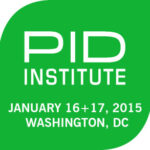
This two-day course was presented on January 16-17, 2015 by Design Corps, SEED Network, AIA DC, Architecture for Humanity-DC, and the CUA School of Architecture and Planning (CUArch). The Institute provides design and planning professionals with in-depth study on methods of how design can address the critical issues faced by communities. Training in public interest design is a way of enhancing an existing design practice and learning skills to become pro-actively engaged in community-based design. The curriculum is formed around the Social Economic Environmental Design (SEED) metric, a set of standards that outline the process and principles of this growing approach to design. This process provides a step-by-step aid for those who want to undertake public interest design. Certification in the SEED process will be given.
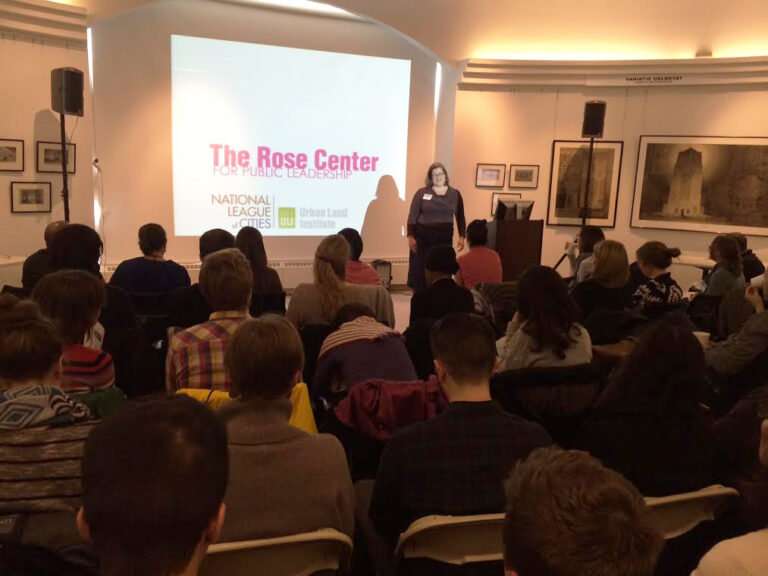
Institute Recap – Evaluation Results
How well did we meet your expectations and provide value to you?
Please evaluate how successfully the Public Interest Design Training met your expectations for each of the following.
“5” is highly successfully? “3” is successfully? “1” is unsuccessfully
| Average Score | Learning Objective |
| 4.1 | Pro-actively finding new clients and public interest design projects |
| 4.2 | Learning about new fee sources and structures |
| 4.3 | Using a step-by-step process of working with a community as a design partner |
| 4.2 | Leveraging other partners and assets to address project challenges |
| 4.4 | Maximizing a project’s positive impact on a community |
| 4.2 | Moving beyond LEED to measure the social, economic, and environmental impact on communities |
| 4.5 | Understanding public interest design and how is it re-shaping the design professions |
Speakers
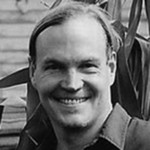
Bryan Bell: is the Academic Leader of each session, the founder of Design Corps, founder of the Public Interest Design Institute, and a co-founder of SEED. Bell has supervised the Structures for Inclusion lecture series for ten years which presents best practices in community-based design. He has published two collections of essays on the topic. Bell has lectured and taught at numerous schools including the Rural Studio with Samuel Mockbee. He has received an AIA National Honor Award in Collaborative Practice. His work has been exhibited in the Venice Biennale and the Cooper Hewitt Museum Triennial. He was a Harvard Loeb Fellow in 2010-11 and a co-recipient of the 2011 AIA Latrobe Prize which is focused on public interest design.
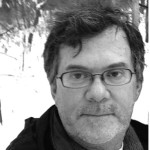
Bradley Guy: is an Assistant Professor in the MS in Sustainable Design program, School of Architecture and Planning, The Catholic University of America (CUArch) and Associate Director of the Center for Building Stewardship at CUArch. He also teaches at the Yestermorrow Design / Build School. Brad has received The Tides Foundation Environmental Leadership Program and The Graham Foundation for Advanced Studies in the Fine Arts Research Fellowships. He has a M.S.A.S. from the University of Florida, and a B.Arch. from the University of Arizona. He is an Associate of the AIA and an USGBC LEED AP BD+C.
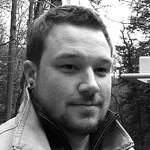
Mark Palmer: is a Senior Associate at RTKL in Washington, DC. He works as a designer in healthcare architecture with a focus on exterior building design, master planning, sustainable design, and research. He’s worked on a variety of architecture and design projects in the US, Canada, Asia, Africa, and the Middle East. Mark began volunteering with Architecture for Humanity in 2004 and has helped to lead and facilitate both design and community engagement projects. In 2010, Mark spoke at the UN Habitat Conference on Promoting Green Building Rating Systems in Africa. His design philosophy has been driven by an interest in culture, ecology, social impact, and thinking about buildings as systems rather than objects.
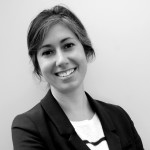
Rayya Newman: is a Director of Project Development for the Washington DC Chapter of Architecture for Humanity, a charitable organization that works to solve social justice issues through sustainable architecture where she works as a volunteer. She is an Architect with 11 years of experience on a variety of project types, and works at ZGF Architects in Washington DC. She is an AIA member, LEED-accredited, and SEED-certified professional. Rayya believes in the triple bottom line approach to sustainability including social and economic as well as environmental issues. Her blog publicinterestdesign-dc.org highlights public interest design projects, events, and people in the DC area. Rayya received her Bachelor of Architecture from The Catholic University of America and her Master of Architecture from Virginia Tech.
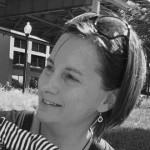
Sarah Mehaffey: is a Co-Director of AfH-DC, and during her 9 years volunteering with the organization has worked as a design team member on several international projects. She is a licensed Architect with 13 years of experience, currently working as a Project Architect at EYP, Inc. in Washington, DC. She received her Master’s degree in Architecture, with an emphasis on Sustainable Design, from the University of Texas at Austin, and has a Bachelor of Science in Architecture from the University of Virginia. Sarah works under the philosophy that respect for one’s surroundings and neighbors, coupled with thoughtful design, can solve most problems.
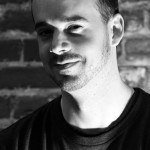
Scott Walzak: is the co-founder of MakeDC — Washington, D.C.’s first public interest design studio. He has always believed in the power of design thinking to provide thoughtful, human-centered solutions. This passion is most fully expressed in MakeDC, which was launched to offer design services to those who have not generally had the benefit of thoughtful design. A recipient of multiple design awards, Scott has served on design juries and is an established academic and professional speaker. An experienced project manager, Scott simplifies the process of design, construction, and implementation through collaborative and integrative strategies that incorporate the needs of stakeholders, shareholders, and users.
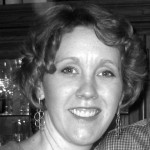
Scott Walzak: is the co-founder of MakeDC — Washington, D.C.’s first public interest design studio. He has always believed in the power of design thinking to provide thoughtful, human-centered solutions. This passion is most fully expressed in MakeDC, which was launched to offer design services to those who have not generally had the benefit of thoughtful design. A recipient of multiple design awards, Scott has served on design juries and is an established academic and professional speaker. An experienced project manager, Scott simplifies the process of design, construction, and implementation through collaborative and integrative strategies that incorporate the needs of stakeholders, shareholders, and users.
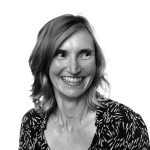
Jennifer Goold: is the Executive Director at the Neighborhood Design Center (NDC) and directs all aspects of the center’s operations including staff, programs, outreach, and fundraising. She joined NDC in 2012 after more than a decade of work in cultural resources management, historic preservation, tax credit consulting, real estate development, and transportation planning. The Neighborhood Design Center, founded in 1968, provides pro-bono design assistance in support of community projects in Baltimore City and Prince George’s County. A Baltimore resident since 1993, she has been involved in many of the city’s largest historic building rehabilitations, including the American Can Company, Silo Point, Tide Point (now the Under Armour headquarters), and Clipper Mill. She received a BS in Interior Design from Indiana University and an MS in Historic Preservation from Columbia University.
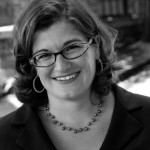
Jess Zimbabwe: is the Executive Director of the Daniel Rose Center for Public Leadership at the Urban Land Institute (ULI). The mission of the Daniel Rose Center is to achieve and support excellence in land use decision making. Previously, Jess was the Director of the Mayors’ Institute on City Design and served as the Community Design Director at Urban Ecology, providing pro bono community planning and design assistance to low-income neighborhoods in the San Francisco Bay Area. Jess is a licensed architect, certified city planner, and a LEED-Accredited professional. She earned a Master of Architecture and Master of City Planning from UC Berkeley and a B.A. in Architecture from Columbia University.
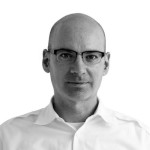
Gregory Kearley: is the Executive Director of Inscape Publico. In founding Inscape Studio, it was not Greg’s intention to create a singular stylistic approach to architecture, but to put into place the framework for a collective design process. Design for the public good was always part of Greg’s mindset, and throughout his career, he has been involved in many projects with nonprofits. Instead of running a design firm that completes one pro-bono project per year, he wanted to have a separate nonprofit firm dedicated to working with other nonprofits, which led to the formation of Inscape Publico.
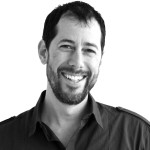
Stefan Schwarzkopf: is the Design Director of Inscape Publico. Believing in the power of good design and the benefit of making this accessible to more people, Stefan has worked on a variety of pro-bono projects throughout his career. Shortly after beginning to work with Inscape Studio, he and Inscape founder Greg Kearley co-founded Inscape Publico, a 501(c)(3) nonprofit architecture firm that is 100% dedicated to this meaningful work, and in combination with Inscape Studio forms a social enterprise representing a viable business focused on much more than just making money doing good design.
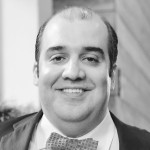
Ramiro Gonzalez: is the Redevelopment Manager for the City of Brownsville. With an undergraduate degree from George Washington University and a Masters in Community and Regional Planning from the University of Texas at Austin, Ramiro chose to return to his hometown in 2009 becoming the Comprehensive Planning Manager for the City of Brownsville. Ramiro has worked on major initiatives in Brownsville including Downtown Revitalization and Brownsville\’s Master Hike and Bike Plan. In addition to his efforts on Downtown Revitalization, he serves on the TSC Architecture Advisory Committee, TXDOT State Bicycle Advisory Committee, Brownsville Wellness Coalition, and the Community Advisory Board.
Location:
Locraft Room 200 (2nd floor above lobby)
Edward M. Crough Center for Architectural Studies
The Catholic University of America
620 Michigan Avenue NE
Washington, DC 20064
Directions and campus map
http://www.cua.edu/about-cua/directions.cfm
Pricing:
General:
• Super Early Bird (ends 11/24/2014): $225
• Early Bird (ends 12/17/2014): $250
• Regular: $275
AIA/AfH Member:
• Super Early Bird (ends 11/24/2014): $175
• Early Bird (ends 12/17/2014): $200
• Regular: $225
Student: $150
Schedule:
Friday January 16th
| 8:00 to 9:00 9:00 to 9:15 9:15 to 10:15 10:15 to 10:30 10:30 to 12:00 12:00 to 1:15 1:15 to 2:45 2:45 to 3:15 3:15 to 3:30 3:30 to 4:30 4:30 to 5:00 | Registration and Coffee Welcome Bryan Bell, Context of Public Interest Design Coffee Case Study 1: Scott Walzak – MakeDC Lunch (on your own) Case Study 2: Inscape Publico Case Study 3: Courtney Spearman – NEA Coffee Case Study 4: Bryan Bell – Migrant Housing Discussion |
Saturday January 17th
| 8:30 to 9:00 9:00 to 10:00 10:00 to 10:30 10:30 to 10:45 10:45 to 12:15 12:15 to 1:30 1:30 to 2:30 2:30 to 3:30 3:30 to 3:45 3:45 to 4:15 4:15 to 4:30 4:30 to 5:00 | Coffee Bryan Bell, SEED Brad Guy – CUArch Coffee Case Study 5: Jess Zimbabwe – ULI Lunch (on your own) Case Study 6: Jennifer Goold – Neighborhood Design Center Case Study 7: Architecture for Humanity DC Coffee SEED Certification Review Evaluation SEED Certification Exam |


